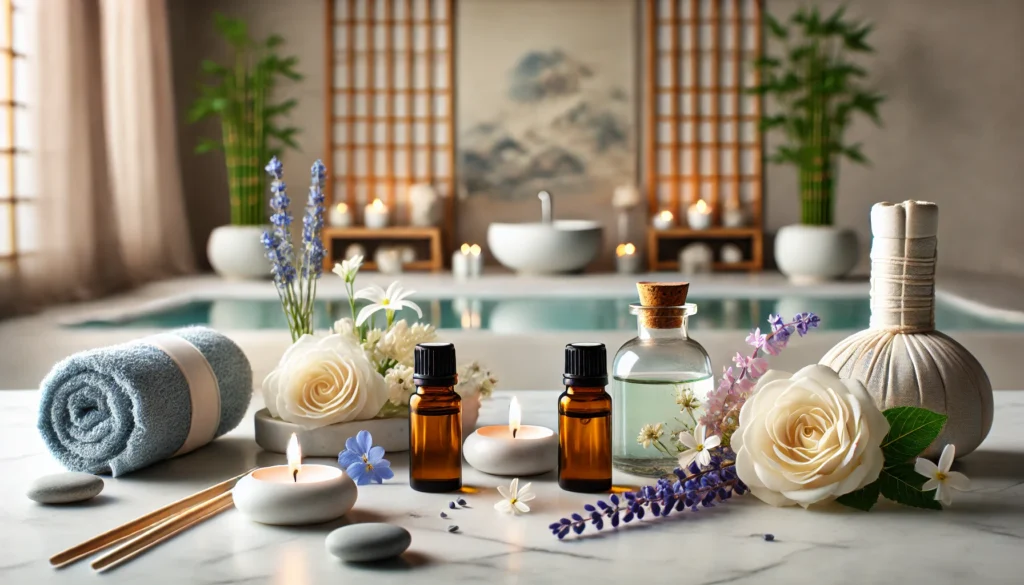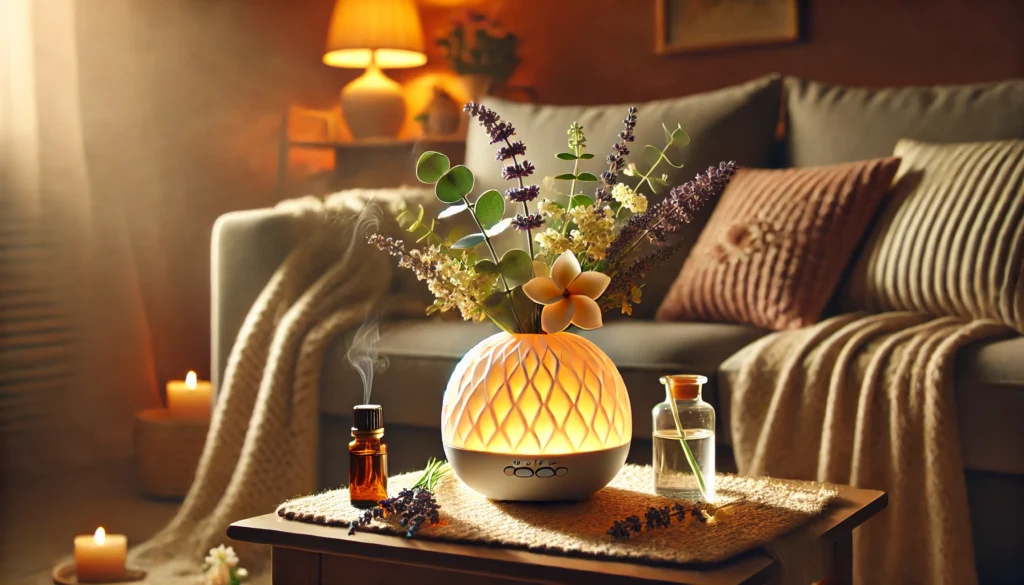Essential oils have a rich history dating back thousands of years, embedded in the traditions of ancient civilizations. These potent plant extracts were revered not just for their aroma, but for their therapeutic properties, playing significant roles in cultural rituals and daily life.
You may also like: Top 10 Herbs for Stress Relief
Ancient Egyptian Practices
In ancient Egypt, essential oils such as frankincense and myrrh were considered treasures, integral to religious ceremonies and embalming practices. Egyptians believed these oils could connect them to the divine, and they often used them in spiritual rituals to invoke protection and purification. The oils were also part of daily beauty regimens, used to nourish the skin and hair, symbolizing not only health but also status and wealth.
Greek and Roman Contributions
The Greeks and Romans also embraced essential oils, incorporating them into both medicinal and leisure activities. Greek physicians like Hippocrates recognized the healing potential of these oils, using them in therapeutic massages and steam baths to promote health and vitality. Romans, on the other hand, indulged in the luxury of scented baths and massages, believing that the oils could relieve stress and enhance mood, making them an essential part of their famed bathhouses.
Influence in Other Ancient Cultures
Beyond Egypt, Greece, and Rome, essential oils were significant in other ancient cultures such as Chinese and Indian societies. In China, essential oils were used in traditional medicine practices to balance the body’s energies. In India, the practice of Ayurveda incorporated essential oils for their balancing properties, aiming to harmonize the mind, body, and spirit. These ancient practices laid the groundwork for the modern understanding of essential oils in holistic health.
Understanding Essential Oils
Essential oils are concentrated plant extracts obtained through meticulous processes, capturing the plant’s essence and unique properties. These oils are not just fragrant; they are a complex blend of chemical compounds that interact with the body and mind to offer various benefits.
Extraction Methods
Essential oils are extracted through methods such as steam distillation and cold pressing, each ensuring the purity and potency of the oil. Steam distillation involves passing steam through plant materials to vaporize the essential compounds, which are then condensed into liquid form. Cold pressing, typically used for citrus oils, involves mechanically pressing the plant material to release the oils. These methods preserve the delicate balance of the plant’s natural compounds, ensuring the oil’s effectiveness.
Chemical Composition and Benefits
Each essential oil has a unique chemical composition that determines its aroma and therapeutic properties. For instance, lavender oil contains linalool and linalyl acetate, which are known for their calming effects. These chemical components interact with the body in various ways, influencing mood, reducing stress, and promoting relaxation. Understanding the chemical makeup of essential oils can help in selecting the right oil for specific needs.
Interaction with the Body and Mind
Essential oils work by interacting with the limbic system when inhaled, the brain’s emotional center, which influences mood and emotions. This interaction can evoke feelings of calmness and relaxation, making essential oils a powerful tool for stress relief. Additionally, when applied topically, essential oils are absorbed through the skin, potentially offering localized benefits such as muscle relaxation or skin rejuvenation. This dual approach enhances the overall therapeutic experience.

Top Relaxing Essential Oils
Lavender Oil
Lavender oil is perhaps the most renowned essential oil for relaxation. Its gentle and soothing aroma has been shown to reduce anxiety and stress, promoting a state of calm. Studies suggest that lavender oil can improve sleep quality, making it a popular choice for those struggling with insomnia. Its versatile nature allows it to be used in various forms, from diffusers to bath salts, making it a staple in relaxation routines.
Chamomile Oil
Chamomile oil, derived from the flowers of the chamomile plant, is another essential oil known for its calming effects. Its sweet, floral scent can help alleviate stress and anxiety, creating a peaceful environment. Chamomile oil is also used to soothe skin irritations and promote restful sleep. Its anti-inflammatory properties make it a gentle choice for sensitive skin, offering both emotional and physical relief.
Ylang Ylang Oil
Ylang ylang oil, extracted from the flowers of the Cananga tree, offers a rich, floral aroma that is both calming and uplifting. It is known to reduce stress and anxiety levels, enhance mood, and promote relaxation. Ylang ylang oil is often used in aromatherapy to create a sense of balance and tranquility. Its balancing properties make it a popular choice for evening rituals, helping to unwind and prepare for a restful night’s sleep.
Bergamot Oil
Bergamot oil, derived from the peel of the bergamot orange, is a refreshing and uplifting essential oil. Its citrusy scent is known to alleviate stress and anxiety, promoting relaxation and improving mood. Bergamot oil is also used to enhance skin health and reduce inflammation. Its versatility makes it a favorite for blending with other oils, adding a bright and invigorating note to relaxation blends.
Frankincense Oil
Frankincense oil, with its woody and earthy aroma, has been revered for its calming and grounding properties. It is often used in meditation and spiritual practices to promote relaxation and focus. Frankincense oil is also known for its anti-inflammatory and immune-boosting benefits. Its deep, resinous scent enhances contemplative practices, making it ideal for use in meditation spaces.

Current Trends and Future Implications
The popularity of essential oils has surged in recent years, driven by a growing interest in natural and holistic wellness practices. As more people seek alternatives to pharmaceutical solutions, essential oils have become a staple in many wellness routines.
Integration into Daily Life
Essential oils are now integrated into various aspects of daily life, from personal care products to household cleaning solutions. Diffusers and roll-ons offer convenient ways to experience the benefits of essential oils, while DIY recipes for bath salts, lotions, and candles allow for personalized relaxation experiences. The accessibility and versatility of essential oils have made them a popular choice for those looking to incorporate natural elements into their lifestyles.
Scientific Research and Advancements
Ongoing scientific research continues to explore the potential benefits of essential oils, shedding light on their therapeutic effects. Studies on the neurophysiological mechanisms of essential oils have provided insights into their calming and mood-enhancing properties. As research progresses, we may discover new applications and combinations of essential oils that can further enhance relaxation and well-being. This growing body of evidence supports the integration of essential oils into both mainstream and alternative medicine.
Environmental and Ethical Considerations
As the demand for essential oils grows, there is an increasing focus on sustainable and ethical sourcing. Consumers are becoming more aware of the environmental impact of essential oil production and are seeking products that are responsibly sourced. Companies are responding by adopting transparent practices and certifications that ensure the oils are produced in ways that protect natural ecosystems and support fair trade.
Practical Advice for Using Essential Oils
Safety Considerations
While essential oils offer numerous benefits, it is important to use them safely. Always dilute essential oils with a carrier oil before applying them to the skin to avoid irritation. Perform a patch test to ensure there is no allergic reaction. Pregnant or breastfeeding individuals and those with certain health conditions should consult a healthcare professional before using essential oils. Understanding the proper use and potential contraindications of essential oils is crucial for safe and effective application.
Methods of Application
- Inhalation: Use a diffuser to disperse essential oil into the air or add a few drops to a bowl of steaming water and inhale deeply. This method is ideal for immediate mood enhancement and can be easily adapted to different settings, from home to office.
- Topical Application: Dilute essential oils with a carrier oil like coconut or jojoba oil and apply to pulse points or areas of tension. This method allows for targeted relief and can be part of a daily skincare or massage routine.
- Bath: Add a few drops of essential oil to a warm bath for a relaxing soak. Combining essential oils with Epsom salts or baking soda can enhance the experience, providing both physical and mental relaxation.
Creating a Relaxing Environment
To create a calming atmosphere, consider combining different essential oils to achieve a desired effect. For instance, blending lavender and chamomile can enhance relaxation, while ylang ylang and bergamot create an uplifting ambiance. Experimenting with different combinations allows for personalized relaxation experiences, tailored to individual preferences and needs.
Conclusion
Essential oils offer a natural and effective way to achieve ultimate relaxation. With their rich history, therapeutic properties, and growing popularity, essential oils are a valuable addition to any wellness routine. By understanding their benefits and using them safely, you can create a serene environment that promotes relaxation and tranquility. Embrace the power of essential oils and embark on a journey towards a more peaceful and balanced life. The path to relaxation is not just about finding moments of calm but creating a lifestyle that supports ongoing well-being and harmony.
Further Reading:
12 Best Essential Oils for Stress Relief
The 10 Best Essential Oils for Stress
Which essential oils can relieve anxiety?
Important Note: The information contained in this article is for general informational purposes only, and should not be construed as health or medical advice, nor is it intended to diagnose, prevent, treat, or cure any disease or health condition. Before embarking on any diet, fitness regimen, or program of nutritional supplementation, it is advisable to consult your healthcare professional in order to determine its safety and probable efficacy in terms of your individual state of health.
Regarding Nutritional Supplements Or Other Non-Prescription Health Products: If any nutritional supplements or other non-prescription health products are mentioned in the foregoing article, any claims or statements made about them have not been evaluated by the U.S. Food and Drug Administration, and such nutritional supplements or other health products are not intended to diagnose, treat, cure, or prevent any disease.


